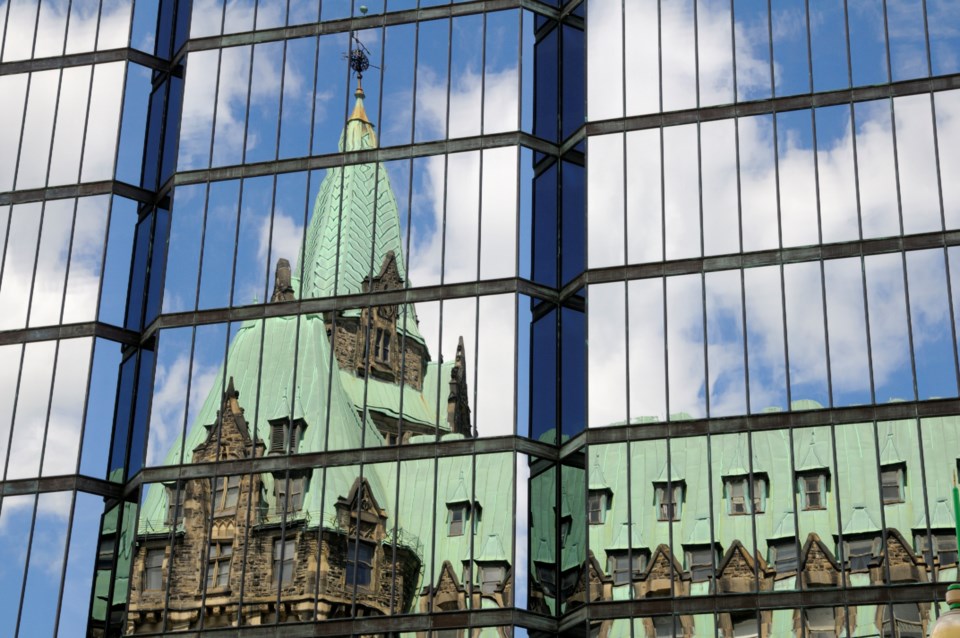How is it possible to be the underdog in a political party leadership race when you are:
a) a former leader who kept the lights on at the party’s lowest point;
b) a former cabinet minister who soothed sentiments at the front lines of a constitutional crisis and
c) a former premier in a province crucial to the party’s electoral success?
How is it also possible that this underdog holds a distinct advantage over rivals in ticking the boxes on beliefs Canadians broadly endorse that, on the surface at least, would make the party under his leadership most electable?
How is it that even Jean Charest himself acknowledges this is where he is stationed in his effort to return to public life?
“I have been an underdog all my life,” Charest says. “I keep reminding the media that I’m not good at winning polls. I’m better at winning election campaigns.”
The Conservatives have lost three such campaigns in a row now. Its caucus earlier this year was the first to use the 2014 federal Reform Act – interestingly, a Conservative concoction – as retribution to oust Erin O’Toole as a one-and-done leader. When it did so, few were arguing that it needed to push itself hard to the right. Certainly, it needed to be a clearer alternative to Justin Trudeau’s Liberals, but probably not that kind of alternative.
Hovering for an opening to declare his candidacy was Ottawa MP Pierre Poilievre, ferocious on his feet in the Commons but until recently little regarded as legitimate leader material, much less a prime minister-in-waiting.
Poilievre was initially considered a shock-value, front-running distraction who would flame out swiftly when a more moderate, less visceral candidate emerged – an ideal Mr. Knuckles sidekick to the leader’s Mr. Chuckles. It can be argued that the party brass prolonged the contest so someone like Charest would have time to campaign and someone like Poilievre would have time to implode.
So much for best-laid plans.
Poilievre has to date been the one with the large crowds and the large mouth to rally them. Charest’s three prominent decades in politics, as can be expected not without their hiccups, are startlingly glossed over in the process by the party to identify the shiny new object – not quite a tussle of steak versus sizzle, more like one of experience versus expedience, and perhaps tortoise versus hare. What is unclear is why the party membership would believe Poilievre as-is will play well to the general population.
Poilievre would kill the carbon tax, defund CBC, strive to make Canada the world’s blockchain capital, slay inflation by eliminating deficits mainly through cuts, and – most importantly as a message – aim to make Canada “the freest nation in the world.” Freedom is a watchword of his campaign; that he gave oxygen to the Ottawa truckers’ convoy has defined him.
Still, while his speeches sometimes veer into the strangest of weeds, he has been the candidate most able to stir sentiments and scavenge support. It is a distortion, handy to his foes, to compare his techniques to those of Donald Trump, even if he is the candidate most likely to inherit his supporters.
He appeases audiences by lumping rivals Charest and former Ontario Conservative leader Patrick Brown – now mayor of Brampton – as carbon-tax candidates who would simply impose Liberal policies. It is smart politically for the Tories not to out-Liberal the Liberals.
But Charest isn’t that, of course. Fiscally restrained, socially progressive, he would shift the carbon tax on to polluters, as was done in Quebec. He overcame skepticism as premier to embrace Quebec’s $10-a-day child-care program, but he would refine the similar federal plan to provide broader tax credits if parents chose private care and more generous parental leave provisions.
In many ways, Trudeau’s tendency of sanctimony has made Poilievre possible. In other ways, it has provided Charest with a convenient target, something you will hear from him in conversation of a Canada “badly divided, very balkanized,” a country with “a choice of going down the route of American-style politics, of division and polarization and hot-button issues and slogans and attack dogs.” Poilievre’s support of the Freedom Convoy, he has said, disrespected the rule of law and disqualified him from credibly pursuing the prime ministership.
The two tangled Thursday at a preliminary debate in Ottawa, and it's going to be increasingly obviously a two-person contest heading forward. The official debate involving all six candidates May 11 (a French-language debate takes place May 25) is the first showcase for underdogs and the new overdog alike. But the larger matter involves selling memberships by June 3 and getting them to vote September 10.
Gone are the days of a delegated convention; these days votes are conducted online with a preferential ballot, meaning voters rank candidates as first, second, third and subsequent choices. As the lowest-polling candidate drops off each ballot, his or her voters’ next choices scoop up that support. This would appear to be Charest’s only probable path to the party leadership – that Poilievre will have devout support to start but nothing much beyond that to grow into a majority.
At 63, this is very likely Charest’s last such rodeo, and he says he is “much more resistant to the temptation to modulate to convince someone. I want to stick very, very close to what I have learned, of what my experience has been, and what I believe in.
“And I guess it’s also part of the experience of being older and having been there – that that allows me to have this sentiment that … in the end, it’s about who I am and what I believe in, and I’m confident that people will want to support that. But at the end of the day, I’m going to continue to be who I am.” •
Kirk LaPointe is publisher and editor-in-chief of BIV and vice-president, editorial, of Glacier Media.





